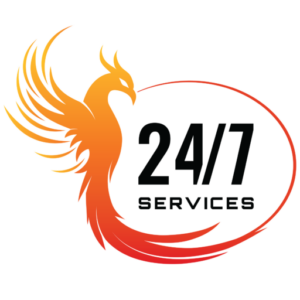Maintaining a comfortable and healthy indoor environment is crucial for homeowners and businesses. Central to this comfort is the Heating, Ventilation, and Air Conditioning (HVAC) system, which regulates temperature, airflow, and air quality within our spaces. However, like any complex machinery, HVAC systems require regular maintenance to operate efficiently. This article will explore the benefits of routine HVAC upkeep, offering seasonal tips to ensure your system performs optimally year-round.
Extending the Life of Your HVAC System
Regular maintenance is the key to extending the lifespan of your HVAC system. Components like filters, coils, and fins need periodic attention to prevent wear and tear that can shorten your system’s operational life. A well-maintained HVAC system can last significantly longer than a neglected one, providing years of efficient service and delaying the need for costly replacements.
Improving Air Quality
Your HVAC system is pivotal in maintaining indoor air quality by filtering out pollutants, allergens, and dust. Over time, filters can become clogged, reducing efficiency and compromising air quality. Regular maintenance ensures clean filters and air ducts, promoting a healthier indoor environment, which is especially important for individuals with allergies, asthma, or other respiratory conditions.
Preventing Costly Repairs
One of the most compelling reasons for regular HVAC maintenance is the potential to prevent expensive emergency repairs. Routine checks can identify and resolve minor issues before they escalate into major problems. For instance, a simple task like replacing a worn belt can avoid a complete system breakdown, saving you from the inconvenience and expense of urgent repairs.
Seasonal Tips for Optimal Performance
Spring:
- Replace the air filter to ensure your air conditioning unit runs efficiently during the warmer months.
- Check the coolant levels and inspect for leaks. Proper coolant levels are essential for efficient cooling.
- Clean the condenser coils to remove any debris that accumulated over the winter.
Summer:
- Keep the area around outdoor units clear of foliage and debris to ensure adequate airflow.
- Adjust your thermostat settings to balance comfort and energy efficiency, considering using a programmable thermostat.
- Schedule professional maintenance to check electrical connections, lubricate moving parts, and ensure the system is in peak condition.
Fall:
- Replace the air filter to prepare for the heating season.
- Check and clean the heating system’s components, including the heat exchanger and burners, to ensure safe operation.
- Inspect the chimney and vent stack for blockages or leaks.
Winter:
- Monitor your system’s performance. Any irregularities in heating could indicate a problem.
- Keep snow and ice away from outdoor units and exhaust vents to prevent blockages.
- Check the insulation on refrigerant lines leading into your house. Proper insulation helps maintain energy efficiency.
Optimize Your HVAC System
Regular HVAC maintenance is not just about preventing breakdowns; it’s about optimizing your system’s performance for comfort, energy efficiency, and air quality. By adhering to a maintenance schedule and following seasonal tips, you can extend the life of your HVAC system, enjoy better air quality, and avoid the stress and cost of unexpected repairs.
Remember, while many maintenance tasks are simple and can be done independently, a professional HVAC technician should perform a comprehensive annual check-up to ensure your system is in top condition. Regular maintenance is investing in the longevity and efficiency of your HVAC system, ensuring it provides comfort and safety for years to come.


